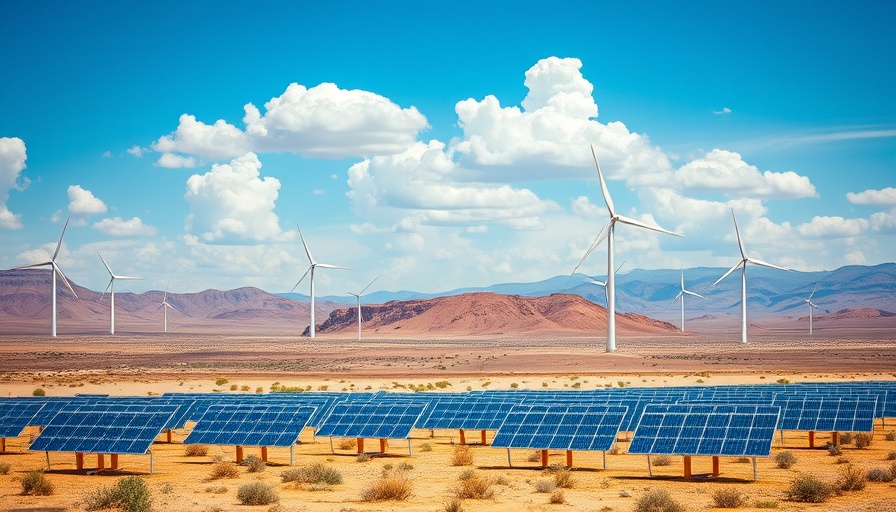
Egypt's New Wind Power Revolution
In a significant step towards sustainable energy, Egypt has launched the Amunet Wind Power Plant, boasting an impressive 500 megawatts (MW) capacity. Located in Ras Ghareb, this facility is set to become Africa's largest wind power site, poised to deliver clean electricity to 500,000 households. Spearheaded by AMEA Power, this project is a clear indication of Egypt's commitment to renewable energy and reducing carbon emissions, with projections suggesting it will offset more than 1.4 million tons of CO2 emissions annually.
Significance of the Project
This initiative is about more than just numbers; it represents a shift in how African countries approach power generation. AMEA Power's chairman, Hussain Al Nowais, aptly stated, "This is the future of power generation in Africa – clean, inclusive, and transformational." His words underscore the potential impacts of this wind power plant beyond Egypt, as African nations increasingly recognize the value of investing in renewable technologies.
Africa’s Growing Renewable Energy Landscape
With the rapid expansion of clean energy projects, the Amunet Wind Power Plant may not hold its title for long. Recent announcements of a even larger 1.1-gigawatt wind farm by Acwa Power and HAU Energy showcase the race toward renewable energy superiority in the region. Scheduled to be operational by 2027, this new facility will generate energy sufficient to power over a million homes, further highlighting the continent’s transition towards sustainable solutions.
The Broader Context of Energy Development
Yet, despite this progress, the World Economic Forum stresses that many parts of Africa remain heavily dependent on fossil fuels, hindering further development of renewable projects. Although Africa houses 20% of the global population, it attracts only 2% of global green energy investments. This disparity begs the question: how can stakeholders push for greater investments in renewable energies while educating communities on sustainable practices?
Opportunities for Boutique Hospitality Professionals
For boutique hospitality professionals, the emergence of projects like the Amunet Wind Power Plant opens up a plethora of opportunities. Eco-lodges, small hotels, and Airbnb hosts can capitalize on the growing demand for sustainable tourism. By emphasizing their commitment to sustainability and environmental responsibility, they can attract eco-conscious travelers seeking greener accommodations. Initiatives like chaos gardening and the promotion of local nature reserves could enhance the guest experience while preserving the delicate ecosystems surrounding their properties.
Conclusion
The launch of the Amunet Wind Power Plant marks a turning point in Egypt's energy landscape, fostering green jobs and promoting environmental awareness. As the project progresses and others emerge, boutique hospitality professionals should explore how they can incorporate these advancements into their operations. Ultimately, embracing these sustainable practices can ensure they remain competitive while contributing to the preservation of our planet.
 Add Row
Add Row  Add
Add 




Write A Comment